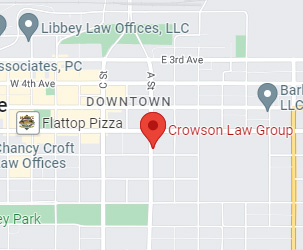Personal Injury Law–5 Facts You Should Know

Personal injury law addresses all manner of accidents although many people think that the law is only applied to car accident cases. There are many misconceptions surrounding personal injury and that’s why it’s important to paint a clear picture of this law. Also, you can contact an Alaska law firm to learn more about this law.
Alaskan personal injury law is typically complicated and you might need to be assisted by a legal expert when seeking justice for injuries resulting from the negligence of another party. It’s advisable to consult an Alaska law firm if you’re considering filing legal action against the faulting party. Fortunately, most lawyers offer a free legal consultation so you won’t have to worry about legal charges even if you’re broke.
Facts of Personal Injury Law
Understanding various facts about personal injury law can help casualties make informed decisions after an accident.
- Personal Injuries Lawsuits Differ from Criminal Lawsuits
Personal injury cases are filed in civil courts and typically involve two parties, a plaintiff (the person who files a claim) and a defendant (the accused person). Defendants can be corporations, individuals, businesses, or an entity. However, the parties involved in a lawsuit aren’t limited to one. On the other hand, criminal actions are filed in criminal courts and typically involve two parties–the prosecution and the accused person. Unlike civil actions, the defendant can’t seek damages in criminal proceedings–except in extraordinary circumstances. Personal injury claims provide justice by compensating the plaintiff while criminal actions hold the accused person accountable for their actions. - Personal Injury Claims can be Resolved Out Of Court
Research shows that most personal injury claims are settled out of court and do not go to trial. Pre-trail settlements can occur if the two parties–the plaintiff, defendant, or their legal teams are cooperative and do not cause unnecessary delays. Having good negotiating skills comes in handy - There is a Time Limit to Initiate Legal action for Personal Injury Claims
Personal injury claims are guided by the Statutes of Limitation, a legal window within which a case should be filed. Your cases will be considered time-barred if it’s filed after the expiry of provisions of the Statutes of Limitations. Personal injury lawsuits should be filed within two to three years from the date of an accident although the provisions of this rule can vary by jurisdiction. Also, the clock starts ticking on the date of sustaining injuries or when the injuries are discovered. It’s important to contact a personal injury lawyer immediately after an accident to avoid legal complications that can arise because of violating the statutes of limitations in your respective jurisdiction. - Each Personal Injury Claim is Unique
Just because a case falls under personal injury law doesn’t it’s similar to other personal injury claims. Personal injury cases vary by the type of accident and severity of bodily injuries or property damage. However, most personal injury claims involve car crashes.
You’re can recover damages in personal injury law if you’ve suffered a loss thanks to the negligence of another party. However, it’s wise to consult a legal expert before filing legal action.


